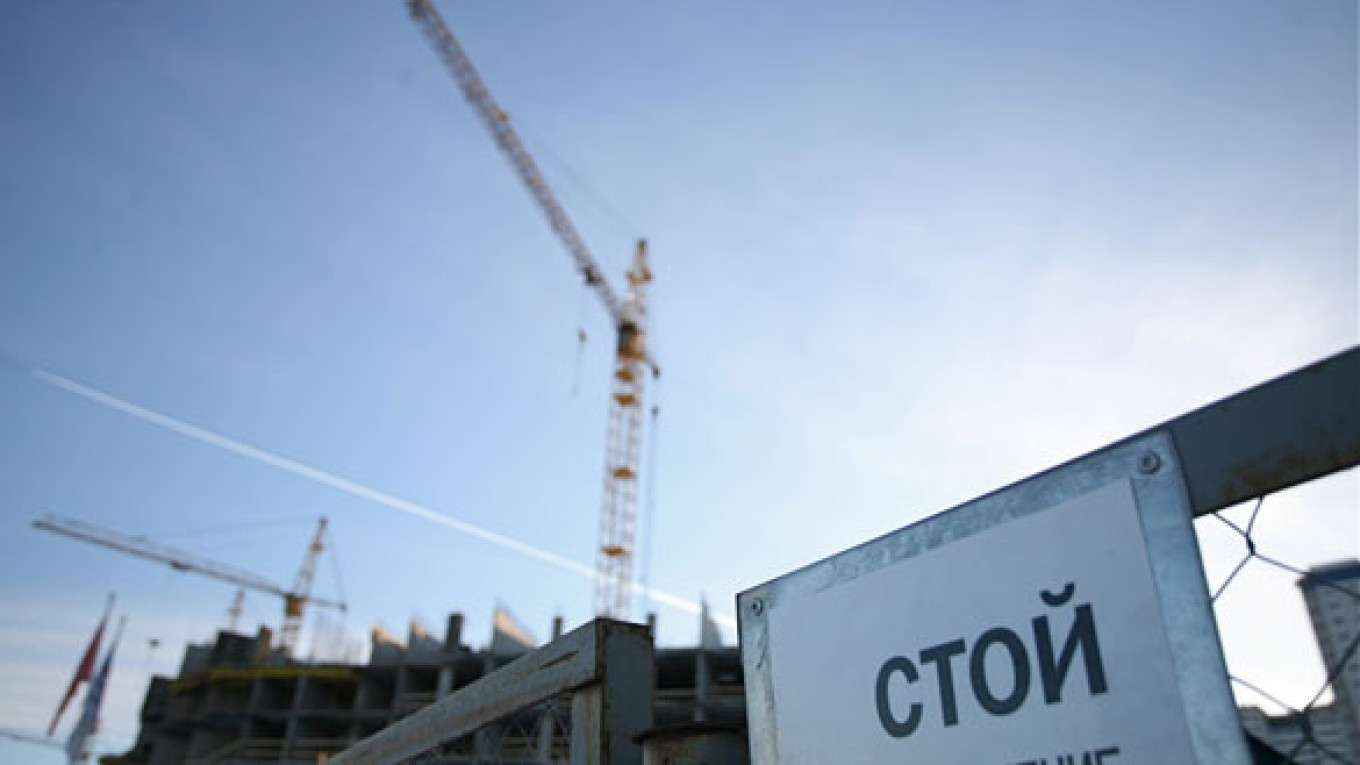More Russian developers may make initial public offerings in 2011 as the macroeconomic situation recovers and demand in certain sectors grows, real estate market players said.
"Barring further economic bad news, I am confident that next year at some point there will be a window for a return of IPOs in the Russian real estate sector," said Saydam Salaheddin, managing director of real estate investment banking at Credit Suisse.
And playing the biggest role in the return will likely be residential real estate companies, which are recovering from the financial crisis more quickly than other sectors.
Residential developers have shown significant month-on-month growth since the beginning of the year, and prices in the sector are increasing as well, while commercial developers take longer to recover, Salaheddin said.
Average apartment prices reached a high of more than $6,000 per square meter before plummeting to about $3,800 with the onset of the financial crisis. Prices have since begun a steady march upward, reaching $4,406 per square meter in May, according to IRN.ru.
"[The residential segment] is the logical first place for investor interest because that's the first segment to recover from every recession, particularly in markets with such structural shortage, and also where your capital comes back the fastest and can be recycled," Salaheddin told The Moscow Times on the sidelines of a recent real estate conference.
Among the residential developers that will be in a strong position to list next year are St. Petersburg-based LEK, Moscow's Vedis Group and Don-Stroi, said Tigran Hovhannisyan, an analyst at UralSib.
"They have good portfolios and a good position on the market … and have a need to raise capital," he said.
Commercial developers might be a little more hard-pressed to visit equity markets, however.
"It typically takes several years to see the capital return for commercial developers, unless yields are contracting and/or rents are rising — something we are unlikely to see for a while due to vacancy rates and the perceived better risk/return profile of real estate assets in other more developed markets," Salaheddin said.
Nevertheless, integrated companies like SU-155, as well as commercial developer Tashir, may be in a good position to list, Hovhannisyan said. Tashir was planning an IPO before the onset of the financial crisis, but was forced to postpone it.
St. Petersburg developer LenspetsSMU, primarily focused on residential development, has said it is preparing for an IPO sometime later this year.
It might take some convincing, however, before investors rush to purchase developers' stocks again.
PIK and Sistema-Hals, two of the country's biggest developers, went public before the crisis, but have since lost much of their value.
Sistema-Hals raised $432 million in a share placement on the London Stock Exchange in 2006 — the first developer to do so. It has since fallen 90 percent.
PIK followed Sistema-Hals' lead, raising $1.93 billion in London in 2007, but has lost more than 80 percent of its value.
Nevertheless, the real estate market needs more big companies to become public, Salaheddin said.
"We need more of the best quality, large and financially strong companies to come to the market and to prove — as a handful of them are doing and will do — that they are great businesses capable of delivering attractive risk-adjusted returns for public investors over a sustained period of time," he said.
And historically, integrated companies have been the ones able to generate the kind of cash flow needed to satisfy investors.
"If you look back at the listed companies that … performed over the difficult years — the best results were shown by integrated companies, by those that are involved in materials production, construction and development," said Michael Kart, managing partner with Marshall Spectrum.
"Business models focusing on pure development in Russia proved to be rather less successful," he said.
A Message from The Moscow Times:
Dear readers,
We are facing unprecedented challenges. Russia's Prosecutor General's Office has designated The Moscow Times as an "undesirable" organization, criminalizing our work and putting our staff at risk of prosecution. This follows our earlier unjust labeling as a "foreign agent."
These actions are direct attempts to silence independent journalism in Russia. The authorities claim our work "discredits the decisions of the Russian leadership." We see things differently: we strive to provide accurate, unbiased reporting on Russia.
We, the journalists of The Moscow Times, refuse to be silenced. But to continue our work, we need your help.
Your support, no matter how small, makes a world of difference. If you can, please support us monthly starting from just $2. It's quick to set up, and every contribution makes a significant impact.
By supporting The Moscow Times, you're defending open, independent journalism in the face of repression. Thank you for standing with us.
Remind me later.


